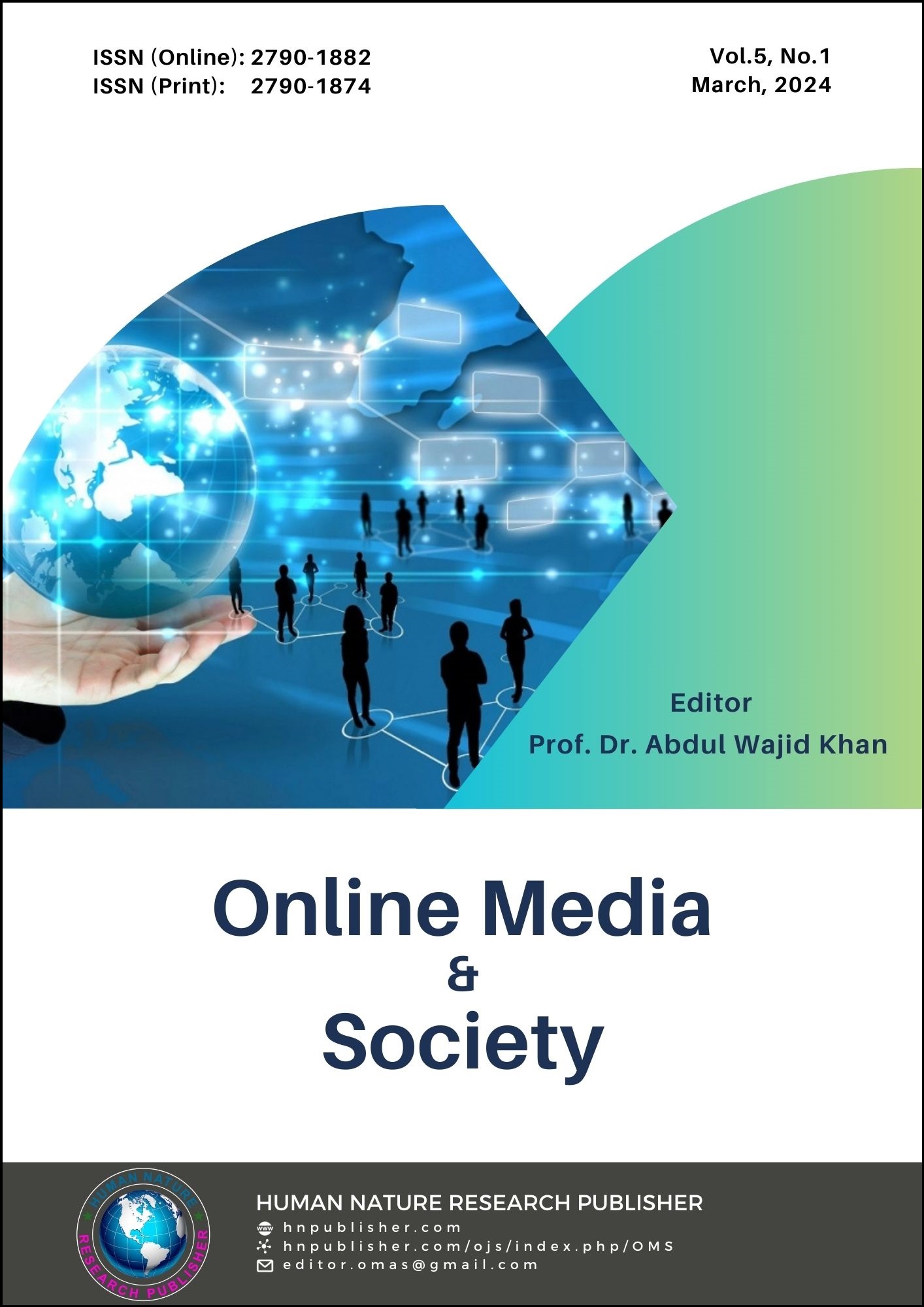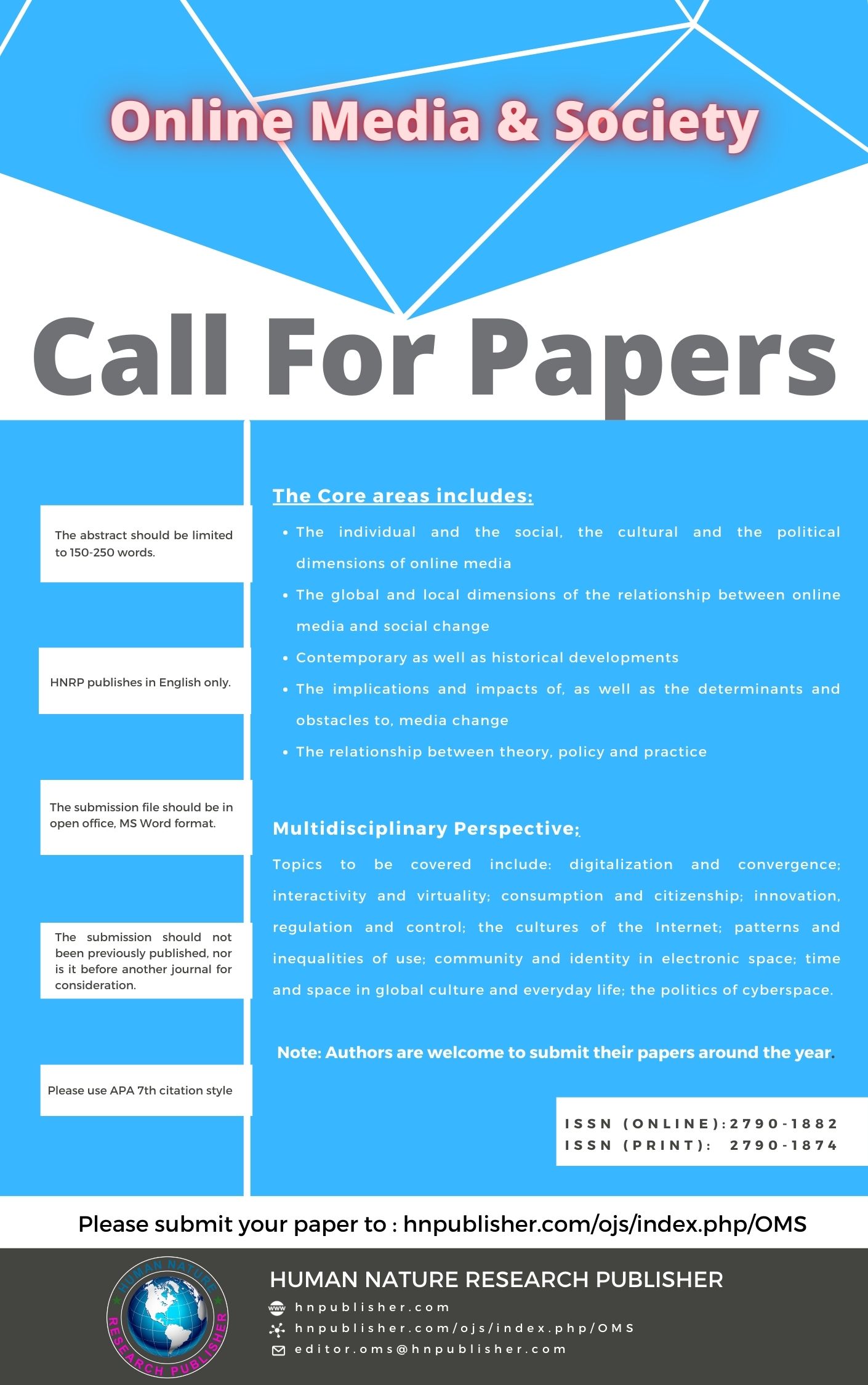Role of Social Media Applications in Creating Intolerance among Pakistani Youth
DOI:
https://doi.org/10.71016/oms/cynsrv52Keywords:
Social Media, Applications, Intolerance, Beliefs, Uses, YouthAbstract
Aim of the Study: Social media has become an integral part of everyone’s life. People, especially the youth around the globe use social media and different social media applications for different purposes like information, education, and entertainment. Social media has provided the opportunity to its users to chat and share ideas and thoughts inform of writing, audio, and video messages.
Methodology: Present research study is based on survey technique to explore and investigate role of social media in creating intolerance among young people of Pakistan. Uses and Gratification theory was used in this research work as theory relevancy. A standardized questionnaire was used for the purpose of data collection from the students selected as sampled from Hazara University, Mansehra. The data was collected according to the objectives of the study. The quantitative data was analyzed by using parametric statistics.
Findings: The empirical analysis of the data reveals that overall majority of the youth of Hazara University frequently use social media and social media applications for different purpose among these purposes information is the most important purpose for using social media applications. Data tabulation and its subsequent analysis reveals that overall, most of the respondents agree that social media affects their beliefs.
Conclusion: The exclusive analysis of the data reveals that TikTok social media application spread intolerance among youth followed by overall majority of the students of Hazara University has the view that social media organizations should implement policies and restrictions to counter the intolerant material used in social media.
Downloads
Published
Issue
Section
License
Copyright (c) 2024 Dr. Majid Ul Ghafar, Muhammad Adil Khan, Azhar Rashid (Author)

This work is licensed under a Creative Commons Attribution-NonCommercial 4.0 International License.








